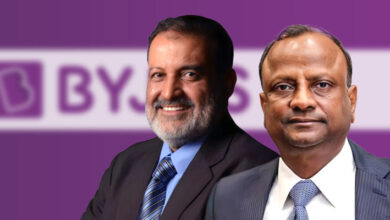Govt to soon appoint 3 independent directors on NaBFID board

Govt to soon appoint 3 independent directors on NaBFID board
The government is in the process of appointment of three independent directors on the board of newly-incorporated Rs 20,000 crore National Bank for Financing Infrastructure and Development (NaBFID), a move that will clear the decks for commencing of operation of the Development Finance Institution critical for infra financing.

With the appointment of three independent directors, sources said, the formation of full board would be completed.
In October last year, the government had appointed veteran banker K V Kamath as the Chairperson of the NaBFID for three years. It also appointed two government nominee directors on the board.
The Development Finance Institution (DFI) has been set up with a view to support the development of long-term non-recourse infrastructure financing in India, including development of the bonds and derivatives markets necessary for infrastructure financing and to carry on the business of financing infrastructure.
The Banks Board Bureau (BBB), the headhunter for state-owned banks and financial institutions, has already invited applications for the post of managing director (MD) of the DFI, which is preparing to commence business in the April-June quarter.
The BBB has also started process for the selection of three deputy managing directors (DMDs) including Chief Finance Officer and Chief Risk Officer.
The last date for submission of application by eligible candidates for the three posts of DMDs is March 21.

The salary and allowances of MD and DMDs will be guided by market and governed by regulations made by the board of NaBFID.
According to the NaBFID Act 2021, the institution will have one MD and not more than three DMDs. The MD and DMDs will not hold office after attaining the age of 65 years and 62 years, respectively.
The DFI is planning to commence business in the April-June quarter and is targeting financial assistance of Rs 1 lakh crore in its first year of operations.
This is going to give a massive push to infrastructure projects, which are part of the Rs 111 lakh crore National Infrastructure Pipeline (NIP).
The government has committed a Rs 5,000-crore grant over and above Rs 20,000-crore equity capital.

The NaBFID has been established as a statutory body to address market failures that stem from the long-term, low margin and risky nature of infrastructure financing.
It will help fund about 7,000 infra projects under the NIP, which envisages an investment of Rs 111 lakh crore by 2024-25.
Infra spending has a multiplier effect on the economy. This means that not only does the project contribute immediately through increased demand for labour and construction materials but also through the second order effects in terms of improved connectivity brings.
Various studies have estimated the multiplier to be between 2.5-3.5 times. So for every rupee spent by the government in creating infrastructure, GDP gains are worth Rs 2.5-3.5.
According to NITI Aayog, in times of economic contractions, this multiplier is larger than the one during times of economic expansion. This could imply that public investment if timed and targeted right, can actually ‘crowd-in’ private investment, rather than ‘crowd-out’.





